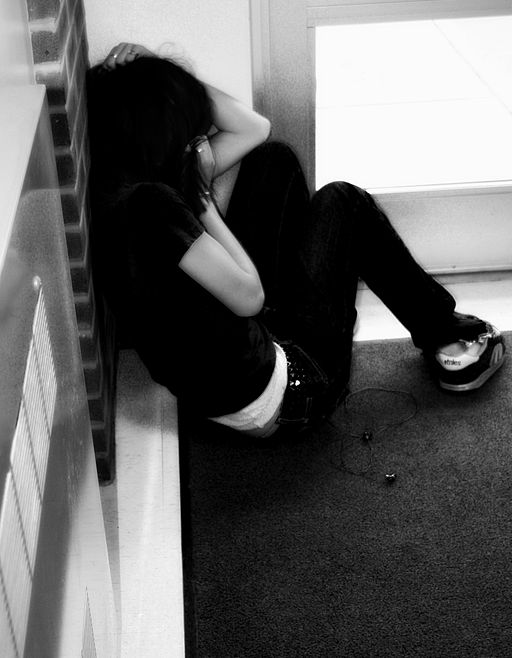Sometimes the most defeating part of dealing with mental illness has to do with the way it’s framed by the self-help community.
We love self-help here in the United States, and—lucky for us—it’s everywhere. We are workaholics when it comes to the commitment of bettering ourselves, and we’re endlessly obsessed with diet, exercise, mental fortitude, professional success and the pursuits of our dreams. We are inundated with optimism, and we are planted in the belief that anything is possible.
It’s a noble pursuit, I think, especially when we are able to take that leap and change for the better. There’s nothing more exciting than those moments in which our paradigm shifts in a good way, but there’s also nothing more defeating than when it shifts in a way that is unexpected and possibly damaging.
When I first began experiencing depression in my early twenties, most of the reactions of friends and family were well-meaning and optimistic in nature:
“Think of all the things you have to be grateful for.”
“Go take a walk. You probably just need some Vitamin D.”
“You just need to make the decision to be happy.”
While all of these things might be feasible for someone who just had a bad day, perhaps someone should have said the following:
“You should probably consider therapy.”
Therapy comes in many forms. Personally, I’ve completed individual therapy, group therapy and drug therapy, all with some level of success, the most successful of the trio being drug therapy. This was also the one thing that I didn’t want to do. I pushed against it, denied needing it, waved it off without even considering it.
When I was 25 years old, I went through the most intense bout of depression of my life, to the point where I was actually losing my hair. In a moment of classic family drama, my mom cried over my dwindling mane when we were out to breakfast one morning, and I promptly made an appointment with my doctor.
Within a week, I was functioning normally.
My life changed in a way that left me relieved, incredulous and kicking myself for not trying this earlier. There was no major high or experience of euphoria, there was simply a restoration of what my brain had previously been missing. To put it in the most simple of terms, I came back to myself.
Over the course of five years, I’ve stuck with my regimen. I still experience ups and downs, I have a full and active (and genetically dramatic) sense of emotion. And I’m familiar with my depression. It’s not new or scary or overwhelming anymore. It doesn’t leave me hopeless, which was the scariest place of all.
I’ve also learned to recognize the faulty language of “curing depression,” and I don’t allow the fallout to be a part of my internal emotional audit. I can’t fault myself for not getting enough Vitamin D, or for not choosing to be happy. The opposite of depression is not happiness, it’s functionality. This is often an unsaid truth. It’s something that I wish I would have understood earlier.
There is no “me versus depression,” there is “me and depression.“
It’s going to be a part of my life experience, but it doesn’t have to be the overarching theme. And it was through therapy that I gained a set of tools for the ongoing management of my mental health. That is something that I am incredibly grateful for.
If you or someone you know might be experiencing symptoms of mental illness, the only answer is to seek professional help, be it beginning with a family physician or setting up therapy with a social worker, or heading to the psychiatrist. Most insurance companies now offer amazing mental health benefits, and there are often low-cost solutions in the neighborhood.
And if the advice is ill-received, then shift the focus to kindness, as it is the one aspect of community that never seems to fail us.
Love elephant and want to go steady?
Sign up for our (curated) daily and weekly newsletters!
Apprentice Editor: Kathryn Muyskens / Editor: Travis May
Photo: Wikimedia Commons












Read 0 comments and reply